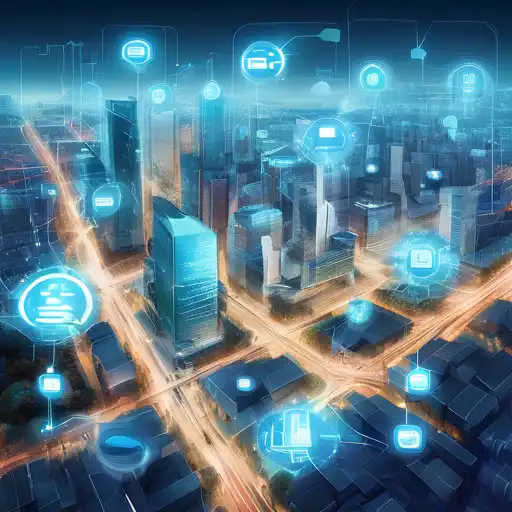Introduction to IoT in Smart Cities
The Internet of Things (IoT) is revolutionizing the way cities operate, making them smarter, more efficient, and more sustainable. By connecting devices, vehicles, and infrastructure to the internet, cities can collect and analyze data to improve services and the quality of life for their residents.
Key Benefits of IoT in Smart Cities
IoT technology offers numerous benefits for smart cities, including enhanced public safety, reduced environmental impact, and improved transportation systems. Here are some of the key advantages:
- Improved Traffic Management: IoT sensors can monitor traffic flow in real-time, reducing congestion and improving commute times.
- Energy Efficiency: Smart grids and IoT-enabled devices can optimize energy use, lowering costs and reducing carbon emissions.
- Waste Management: Smart bins and IoT systems can streamline waste collection, making cities cleaner and more efficient.
- Public Safety: IoT devices can enhance security through surveillance and emergency response systems.
Challenges and Solutions
Despite its benefits, implementing IoT in smart cities comes with challenges such as privacy concerns, high costs, and the need for robust cybersecurity measures. However, with proper planning and investment, these obstacles can be overcome to create safer, more sustainable urban environments.
Future Prospects
The future of IoT in smart cities is bright, with advancements in technology paving the way for more innovative solutions. From autonomous vehicles to AI-powered analytics, the possibilities are endless. As cities continue to grow, IoT will play a crucial role in shaping the urban landscapes of tomorrow.
Conclusion
IoT is transforming smart cities by making them more connected, efficient, and livable. By addressing the challenges and leveraging the benefits, cities can harness the power of IoT to create a better future for all residents. For more insights into digital transformation, explore our technology section.
